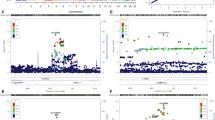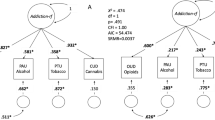Abstract
Only in the past decade has a role of heredity in substance abuse been established as a result of extensive twin and family studies.1,2 More recently, several candidate genes have been investigated for their possible role in alcoholism3–6 and cocaine abuse.7 Specific genetic factors in opioid substance abuse have not been investigated in man, although animal studies suggest that quantitative trait loci (QTLs) can be identified that predispose mice both to morphine and alcohol preference.8 Central dopaminergic pathways figure prominently in drug-mediated reinforcement9 suggesting that dopamine receptors are likely candidates for association with substance abuse in man. In addition, we recently reported an association between a human personality trait, Novelty Seeking10–12 and the long alleles (represented chiefly by the 7-repeat) of the D4 dopamine receptor (D4DR) exon III polymorphism. The personality trait of Novelty Seeking is also more pronounced in substance abusers, who score higher in this dimension than control subjects.13 The twin role of dopamine receptors in mediating Novelty Seeking10–12 and drug-reinforcement9 prompted us to examine a group of Israeli heroin addicts for prevalence of the D4DR repeat polymorphism. We now show that the 7-repeat allele is significantly over-represented in the opioid-dependent cohort and confers a relative risk of 2.46. To our knowledge this is the first report of an association between a specific genetic polymorphism and opioid addiction.
This is a preview of subscription content, access via your institution
Access options
Subscribe to this journal
Receive 12 print issues and online access
$259.00 per year
only $21.58 per issue
Buy this article
- Purchase on Springer Link
- Instant access to full article PDF
Prices may be subject to local taxes which are calculated during checkout
Similar content being viewed by others
Author information
Authors and Affiliations
Rights and permissions
About this article
Cite this article
Kotler, M., Cohen, H., Segman, R. et al. Excess dopamine D4 receptor (D4DR) exon III seven repeat allele in opioid-dependent subjects. Mol Psychiatry 2, 251–254 (1997). https://doi.org/10.1038/sj.mp.4000248
Received:
Accepted:
Issue Date:
DOI: https://doi.org/10.1038/sj.mp.4000248
Keywords
This article is cited by
-
Dopamine Receptor Expression and the Pathogenesis of Attention-Deficit Hyperactivity Disorder: a Scoping Review of the Literature
Current Developmental Disorders Reports (2022)
-
ADHD risk alleles associated with opiate addiction: study of addicted parents and their children
Pediatric Research (2016)
-
Genetic Addiction Risk Score (GARS): Molecular Neurogenetic Evidence for Predisposition to Reward Deficiency Syndrome (RDS)
Molecular Neurobiology (2014)
-
Genetics of impulse control disorders in Parkinson’s disease
Journal of Neural Transmission (2013)
-
Blockade of Dopamine D4 Receptors Attenuates Reinstatement of Extinguished Nicotine-Seeking Behavior in Rats
Neuropsychopharmacology (2012)



